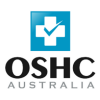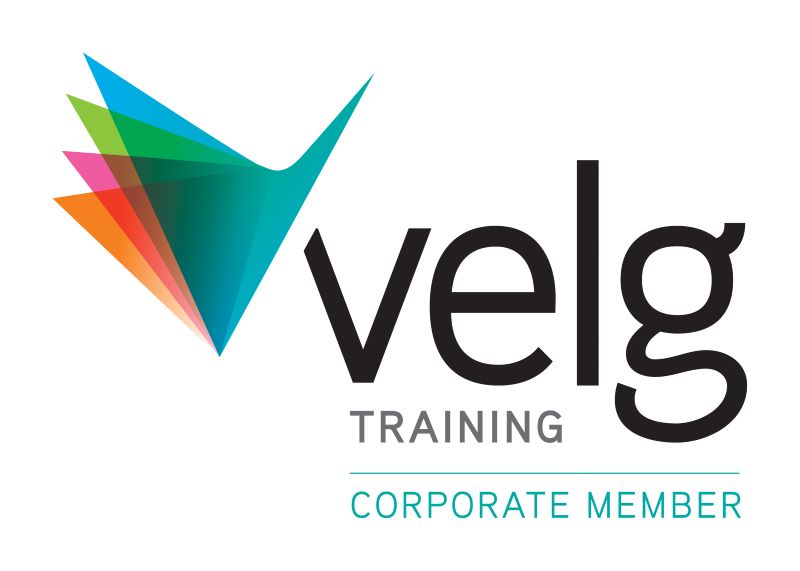
Inspired by excellence & innovation
We offer a wide range of high quality Vocational Education and Training (VET) Courses.
Student Support Services
Acumen education places a lot of emphasis on the welfare of the students. Acumen considers support international students in adjusting to study and life in Australia, as well as achieving their learning goals and attaining the learning outcomes of their course as a prime responsibility.
A wide range of student support services are provided at acumen education to assist and support successful achievement of their learning outcomes. The services include but are not limited to
Housing and Accommodation
Student Support Officers will help you find accommodation and are available year round to help you with housing related problems.
Read more about:
Tenancy Union of Victoria
Renting / Sharing house on Real Estate.com.au – Student Accommodation options – www.unilodge.com.au – Student Housing Australia
Where to live?
It is important to consider your lifestyle, budget and travel when choosing an area to live. Students will also need to consider accommodation that suits their length of stay.
Know your rights
Before you sign any contracts in Australia, be aware of your rights and responsibilities as a tenant.Read through online resources to make sure you’re ready to sign your lease.
House hunting hints
Student Support Officers can help students find accommodation. Get hints on house hunting, the rental market, applications, real estate terms plus advice on renting and sharing.
Finding a home
Arrive before the start of semester and use online resources to make it easier to find a place!
Melbourne has a competitive rental market and finding accommodation can take time.
Safety tips for your home:
- If you are renting, your landlord is obliged to install a working smoke detector.
- Test your smoke alarm when you move in and remember to change the battery each year.
- Australia’s voltage is 230V. Check your electrical and electronic equipment before using them.
- Do not overload power points. Fires can and have happened.
- Lock your doors and windows even if you are away for a short time.
- Give a key to a close friend or relative in case you get locked out.
- Fires are started when the cooking is left unattended.
- Make sure the stove is switched off when you’re finished cooking.
Tips to remember
- You should choose a suburb that suits your lifestyle
- You have rights and responsibilities as a tenant
- You can contact Student Support Officer for housing advice
- You can use www.realestate.com.au to search for available housing
- You should check that your smoke alarm is working
- You should always keep your house locked
OVERSEAS STUDENT HEALTH COVER (OSHC)
Overseas Student Health Cover (OSHC) is compulsory for student visa holders. OSHC Australia is the OSHC provider at acumen education. (if you want You can switch your OSHC between providers)
Meet your Visa requirements
OSHC Australia only offers policies by the OSHC providers mandated by the Australian Government as eligible to fulfill your international student visa requirements.
Compare all providers
oshcAustralia.com.au is the website where you can compare all government authorised providers together. See how their policies differ in terms of features and price to make sure you make the right decision. Not all insurance products offered by these providers are compared.
Overseas Student Health Cover – Frequently Asked Questions
What is OSHC?
OSHC is insurance to assist international students meet the costs of medical and hospital care that they may need while in Australia. OSHC will also pay limited benefits for pharmaceuticals and ambulance services.
Who has to take out OSHC?
People who must take out OSHC are overseas students undertaking formal studies in Australia and their dependents (for example, spouses and children under 18 years old).
For the purposes of OSHC, ‘overseas student’ means:
- a person who is the holder of a student visa; or
- a person who:
– is an applicant for a student visa; and
– is the holder of a bridging visa; and
– was immediately before being granted the bridging visa, the holder of a student visa.
The Department of Home Affairs requires overseas students to maintain OSHC for the duration of time they are in Australia. For further information please visit the Department of Home Affairs website.
Australian currency
Australian currency is in dollars ($) and cents (¢)
In writing, it is coded as AUD.

Coins
The coins available are 5 cents, 10 cents, 20 cents, 50 cents, one dollar and two dollars.
The cents are silver in colour and dollars are gold. $1 coin is bigger than the $2 coin.
Banknotes
The banknotes available are $5, $10, $20, $50 and $100.
The banknotes are coloured with special security features. Visit Reserve Bank of Australia for further information.
Cash Rounding up and down
In Australia, the cash values are rounded up and down to the nearest five cents. 21 or 22 cents is rounded to 20 cents whereas 23 or 24 cents is rounded to 25 cents.
Currency exchange
Exchange services are offered at Melbourne Airport, Melbourne’s central business district (CBD) and in most of the banks. All foreign currency exchanges are charged. Visit Australian exchange rates for more information.
Cost of Living: Understanding the average cost is a significant phase when planning to study in Australia.
The Department of Immigration and Border Protection advices a living cost of AUD20,290 per year for a student or guardian. This includes food, accommodation, Clothes, transport and others and excludes tuition fees and Overseas Student Health Cover.
12 months of funds calculation: Applicable from 1st February 2018 as per the Department of Home Affairs, Australian Government
Living costs:
• Student/guardian – AUD20,290
• Partner/spouse – AUD7,100
• Child – AUD3,040.
Course fees:
Calculate the initial 12 months of course fees or add the total cost of course if it is for a period of 12 months or less. Prepaid costs must be deducted and evidence of payments must be submitted.
Study related expenses such as tuition fees, Overseas Student Health Cover and other fees (services and amenities) must be considered.
Schooling fees:
Schooling costs of AUD8,000 per year for each school aged child included in the student visa application must be added to the amount of funds that is required.
Children between 5 and 18 years of age must be enrolled in school if they are planning to live in Australia for 3 months.
Home set up costs:
The costs below are a rough guide only given by Australian government. Students must be attentive that these costs can vary depending on the study location in Australia.
Accommodation
• Hostels and Guesthouses – $90 to $150 per week
• Shared Rental – $85 to $215 per week
• On campus – $90 to $280 per week
• Homestay – $235 to $325 per week
• Rental – $165 to $440 per week
• Boarding schools – $11,000 to $22,000 a year
Other living expenses
• Groceries and eating out – $80 to $280 per week
• Gas, electricity – $35 to $140 per week
• Phone and Internet – $20 to $55 per week
• Public transport – $15 to $55 per week
• Car (after purchase) – $150 to $260 per week
• Entertainment – $80 to $150 per week
Travel costs:
If applying outside Australia, add AUD2,000 and if applying within Australia, add AUD1,000.
Family members of existing students:
Family members of existing student visa holders need to apply for a subclass 500 visa if they do not presently hold a student visa and like to join you in Australia.
Visit Department of Home Affairs to get further information on expenses.
Earning income
Student visa holders can work up to 40 hours per fortnight (two-week period) during university semesters, and full-time hours during vacations. Visit Work Conditions for further information.
The guide below lists public transport information to our campuses
Melbourne’s public transport is the easiest and best way to get around the city.

Public transport Victoria – Trams, Buses and Trains
Trams, trains and buses
Buy a Myki smartcard for flexible travel between trains, trams and buses. You’ll be able to use public transport in and around the city for just a few hours or all day.
Plan your trip, buy or top up your Myki card online and download maps and timetables from Public Transport Victoria, the one stop shop for information about travelling on public transport (phone 1800 800 007).
Using public transport
International students need to purchase a full-fare mykit smart card to travel on trains, trams and buses in Melbourne.
All three campus of Acumen are in in Zone 1.
Fares and Fines
Make sure you always have sufficient funds on your myki card.
Substantial fines apply for fare evaders.
Save time
PTV has useful resources; a Journey Planner and Tram Tracker.
City Circle Tram
The City Circle Tram is a free service around central Melbourne taking passengers past some of Melbourne’s major attractions. Visit Public Transport Victoria for timetables and a route map.
Bike Share
Bike sharing is a great way to get around the city as an alternative to driving. It’s also healthier and more sustainable.
The first ten docking locations of the Melbourne Bike Share scheme are now available, with 100 bikes in service and more to come.
Tips to remember
Health advice for international students
For many international students, studying and living in Australia can often involve adapting to a new culture and way of living.
Being away from family and friends, and working hard to complete your studies can be difficult. It is important to look after yourself so you stay healthy and safe throughout your stay.
1. Look after your health.
Take time to take care of your health. This includes taking care of your emotional and physical, such as eating right, getting lots of sleep, catching up with friends and having fun. Staying healthy will help your studies.
2. If you are sick or concerned you may have a health problem, visit a General Practitioner (GP) first.
In Australia a General Practitioner is a doctor who works in offices in the community, not in hospitals. They treat colds and flu’s, general health issues such as diabetes, and minor injuries. You should only seek help in a hospital emergency room if you are in a life-threatening situation and have a health emergency.
If you go to a hospital emergency department and it is not an emergency, you will be asked to wait a long time (several hours) to be seen by a doctor. You will be seen once people who need emergency care are treated. If you ARE in an emergency situation and you think you need an ambulance, phone Triple Zero (000) immediately.
3. Health Direct Australia is a health advice telephone line, available 24 hours a day, 7 days a week. They provide expert advice. Call HealthDirect Australia on 1800 022 222 (calls are free from landline telephones, although charges may apply from mobiles).
Another option is to visit your local chemist or pharmacy, to talk with the pharmacist about minor illnesses and medicines. They can help to answer any questions you might have, and suggest what to do next.
4. Understand your Overseas Student Health Cover (OSHC) and how to use it.
Overseas Student Health Cover (OSHC) is insurance to help international students with the cost of medical and hospital care in Australia. Remember to take your OSHC card with you to all medical appointments.
Emergency Phone Number :
Where to find Food and Drinks ?
The City campus is in easy walking distance to a large number of cafes and restaurants and major food courts, Food courts on flinders lane.
On the campus you’ll find microwaves, drinking fountains and the following food outlets in the same building:
• Krispy Kreme
• Sushi hub
• Lord of Fries
• Ben and jerry
Near the Richmond campus you have Victoria street that is famous for a lot of food places. Some of the places in the vicinity are
• Hungry jacks
• Killiney Kopitiam Victoria Street
• Jinda Thai Restaurant
• MASIL Korean Restaurant
• Terminus Hotel
Printing
All campus of acumen education have printing facilities that students can avail. You can log into your student Account and print the documents as per your requirements.
Printing from your personal device
At acumen there is feature that allows you to print from your personal laptop, phone or tablet. To take advantage of this great new feature, just connect your device to the acumen wireless network and follow the instructions which are relevant to your device.
Get connected to the wireless.
Wireless internet access is available to students, staff and authorised visitors. This secure or ‘closed access’ network will appear in the wifi settings of your device. It enables authorised users to access the internet.
Entering your User Id and password.
You it and you can do your assessments on your own devise or browse the internet.
Lockers
Locker facility is available at the Richmond campus for automotive and hospitality students to store their uniform and kits.
To request a locker, you’ll need to contact your student support officer. Once you have been allocated one you’ll need to purchase your own padlock.
Google Apps
Cloud technology has become the preferred way of storing and collaboration in today’s world.
Google Apps for Education provides a suite of communication and collaboration tools that can be used in your studies.
Gmail
Access your email whenever and wherever you are.
Calendar
Organise your studies
Contacts
Stay in touch with your friends and family.
Google+
Provides a means of conducting group work across different locations.
Google Photos
Share and manage your photos and videos with free storage and automatic organisation.
Drive
store, and share documents, presentations and spreadsheets.
Blogger
Offers templates and layouts to create a blog.
Emergency and Crisis Information
Emergency numbers to dial |
The operator will ask for which service you require (police, fire brigade, ambulance). Details to provide:
|
|






